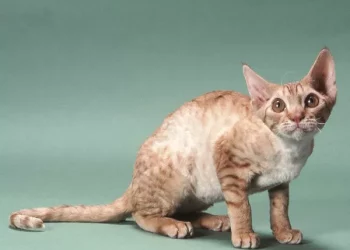Bearded dragons are fascinating reptiles known for their unique appearance and captivating personalities. As responsible pet owners, it is essential to understand their biological processes, including their digestive system. One common question that arises is, “How often does a bearded dragon poop?” In this article, we will delve into the intricacies of a bearded dragon’s digestion, factors affecting their bowel movements, and signs of a healthy digestive system. By gaining insight into these aspects, you will be better equipped to care for your bearded dragon and ensure its overall well-being.
Understanding the Digestive Process
To comprehend the frequency of a bearded dragon’s bowel movements, it is crucial to familiarize oneself with their digestive process. Bearded dragons are omnivorous reptiles, meaning they consume a combination of plant-based matter and small insects. Their diet primarily consists of leafy greens, vegetables, fruits, and live insects like crickets, roaches, and mealworms.
Once ingested, food passes through the bearded dragon’s digestive system, starting from the mouth, down the esophagus, into the stomach, and then into the intestines. Digestion occurs primarily in the stomach and intestines, where nutrients are extracted from the food and absorbed into the bloodstream. The waste products, including undigested materials and fecal matter, then move through the intestines and eventually reach the colon, where water absorption takes place.
Factors Affecting Bowel Movements
Several factors influence the frequency of a bearded dragon’s bowel movements. These factors can vary from individual to individual and may include diet, temperature, hydration, activity level, and overall health. Let’s explore each of these factors in more detail:
- Diet: A bearded dragon’s diet plays a significant role in their bowel movements. If they consume a high-fiber diet, such as leafy greens and vegetables, they may have more frequent bowel movements. However, if their diet lacks fiber or they consume large amounts of protein-rich insects, their bowel movements may be less frequent.
- Temperature: Bearded dragons are ectothermic, meaning they rely on external heat sources to regulate their body temperature. Optimal temperatures are crucial for their metabolic processes, including digestion. If the temperature is too low, their digestive system may slow down, leading to infrequent bowel movements.
- Hydration: Adequate hydration is essential for a healthy digestive system. Insufficient water intake can lead to constipation and infrequent bowel movements. Providing a shallow water dish for your bearded dragon and misting their enclosure regularly can help maintain proper hydration levels.
- Activity Level: Bearded dragons are generally active reptiles, and physical activity promotes bowel movements. Regular exercise and environmental enrichment can help stimulate their digestive system, leading to more regular bowel movements.
- Overall Health: A bearded dragon’s overall health can impact their digestion. Illness, stress, or underlying medical conditions may disrupt their digestive processes, leading to changes in bowel movements. Monitoring their health and promptly addressing any concerns with a reptile veterinarian is crucial.
Signs of a Healthy Digestive System
Now that we understand the factors influencing a bearded dragon’s bowel movements let’s discuss the signs of a healthy digestive system. By observing these indicators, you can gauge whether your bearded dragon’s digestive system is functioning optimally:
- Regular bowel movements: Bearded dragons typically defecate once or twice a day. However, the frequency may vary slightly from individual to individual. As long as the bowel movements are well-formed, not excessively runny or dry, and free from any signs of blood or mucus, it is generally considered normal.
- Consistency and color: The fecal matter should have a firm, tubular shape with a moist consistency. The color may vary depending on the diet but is typically brown or dark brown.
- No signs of straining or discomfort: Bearded dragons should defecate without any signs of discomfort, excessive straining, or vocalization. If you notice such behaviors, it may indicate an underlying digestive issue, and a veterinarian should be consulted.
- Regular appetite and weight maintenance: A healthy digestive system is often reflected in a bearded dragon’s appetite and weight. If your dragon is eating well, maintaining a healthy weight, and displaying normal activity levels, it is a positive indication of good digestive health.
Conclusion
Understanding a bearded dragon’s digestive system and their bowel movement patterns is crucial for providing appropriate care. While the frequency of bowel movements may vary among individuals, observing the signs of a healthy digestive system ensures your pet’s overall well-being. By offering a well-balanced diet, maintaining optimal temperatures, promoting hydration, encouraging exercise, and monitoring their overall health, you can support their digestive processes. If you have any concerns about your bearded dragon’s bowel movements or digestive health, consult with a reptile veterinarian who can provide expert guidance and care.
Recommended reading:


























